Results
-
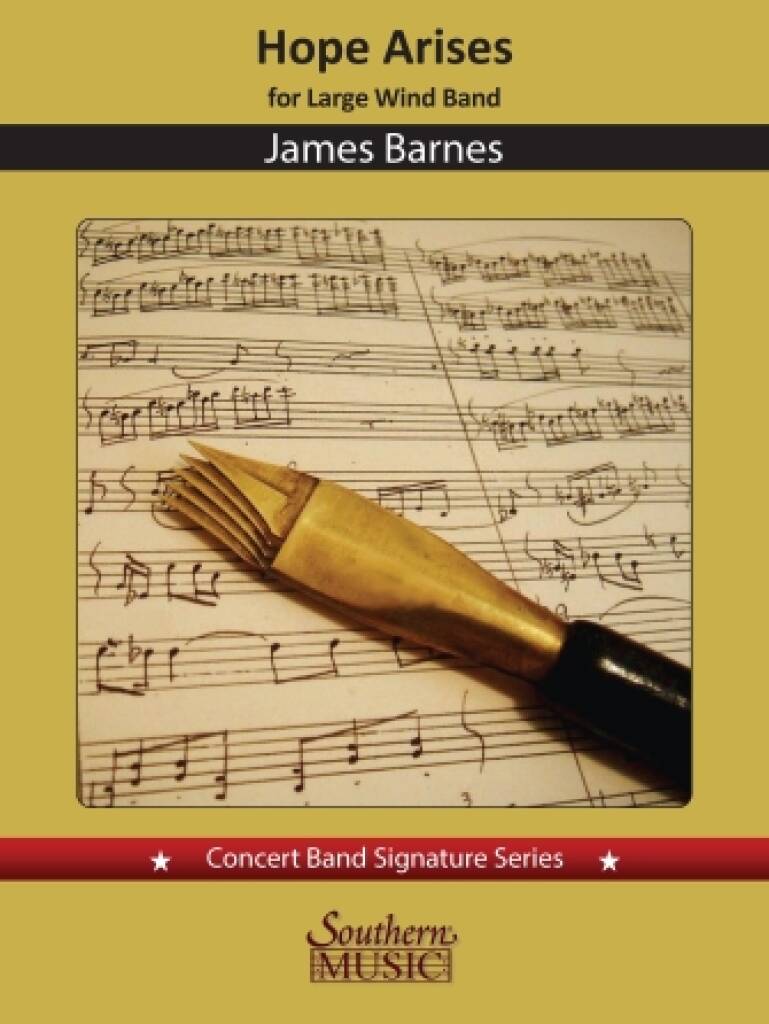 £79.99
£79.99Hope Arises - James Barnes
Hope Arises is one of two new works requested in 2021 of composer James Barnes by Colonel Donald Schofield, to be written for the United States Air Force Band. It is a short piece intended to be used as an opener for AFB's tour concerts. It opens with a dramatic brass fanfare, based on consecutive perfect fourths first introduced by horns and euphoniums, followed by a short oboe solo. An ascending line in mallets and woodwind provide a rather celestial transition, taking the listener to a lively, melodic allegro, which is based on the same opening fourths. This allegro theme is developed until a return to the opening fanfare is powerfully re-announced in brass. The work concludes quite dramatically, and includes a return of the ascending line in woodwinds, mallets, harp and piano.
Estimated dispatch 7-14 working days
-
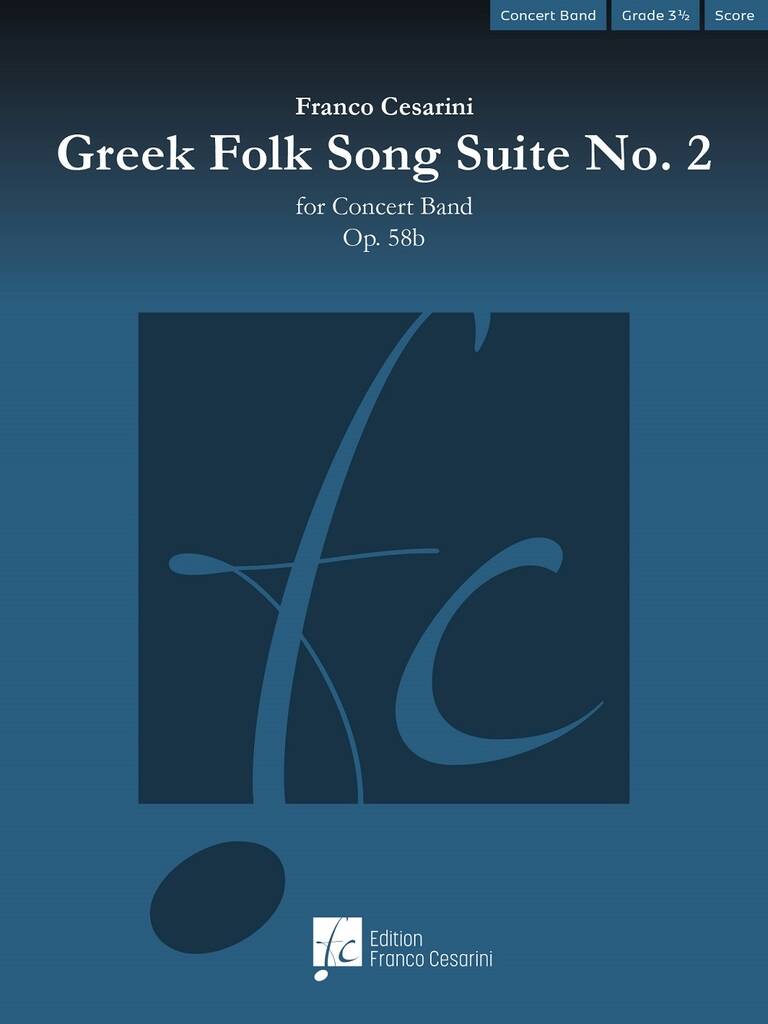 £159.00
£159.00Greek Folk Song Suite No. 2 - Franco Cesarini
After the great success of the Greek Folk Song Suite that has lasted for over twenty years, Franco Cesarini once again ventures into the long and rich tradition of Greek folk music. In his Greek Folk Song Suite No. 2, the three movements that form the piece are named after the three dances reworked by the composer.The first movement, Samiotissa is a kalamatianos, whose most distinctive feature is the irregular 7/8-time signature. It is a festive dance, today considered the Greek national dance, which has roots dating back to antiquity.The second movement, Kato sto jalo is a zeibekiko, a slow-paced dance performed by only one man at a time which was apparently originated among the warriors of Ancient Anatolia.The third and last movement, Chasaposerviko, is the fast part of the hasapiko dance and is characterized by its more extensive form.A new journey into the Greek folk tradition that will delight both performers and audience.
Estimated dispatch 7-14 working days
-
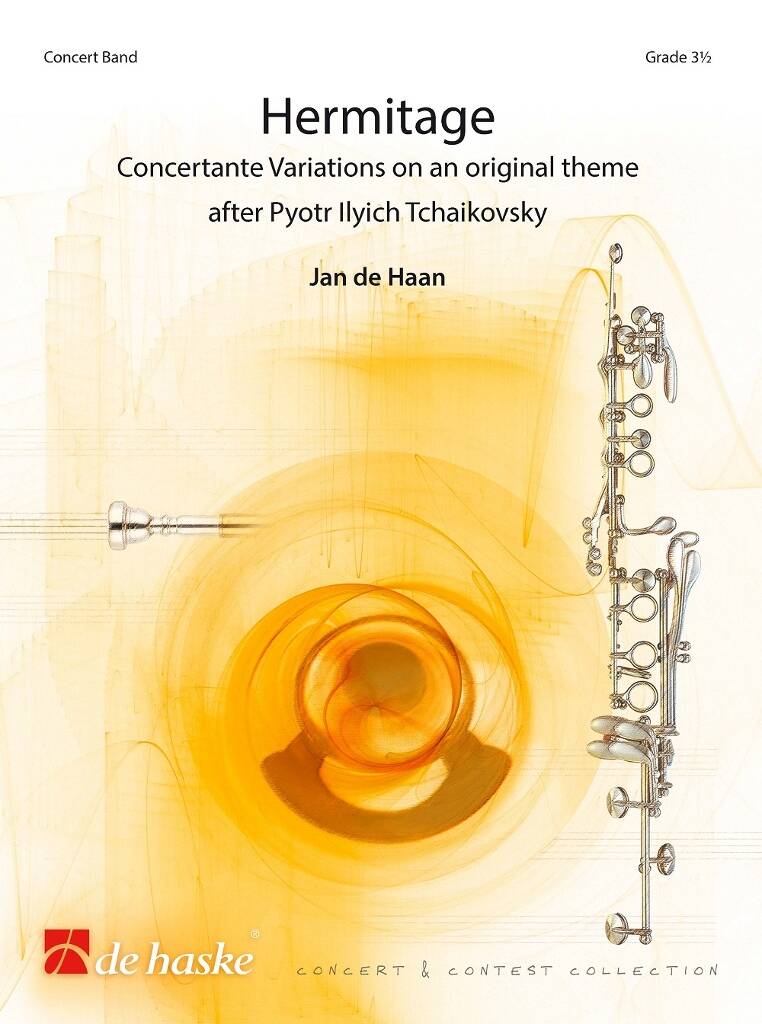 £119.99
£119.99Hermitage - Jan de Haan
Jan de Haan drew inspiration for this work from five paintings exhibited in The Hermitage in Saint Petersburg, one of the largest and most versatile museums in the world. He used the melodious Andante cantabile from the String Quartet Op. 11 by the Russian composer Pyotr Ilyich Tchaikovsky as its starting point. Thus, he created his own musical painting, which is just as varied as the underlying canvases - from Cheerful Company by Dirck Hals to Dance II by Henri Matisse. A true work of art!
Estimated dispatch 7-14 working days
-
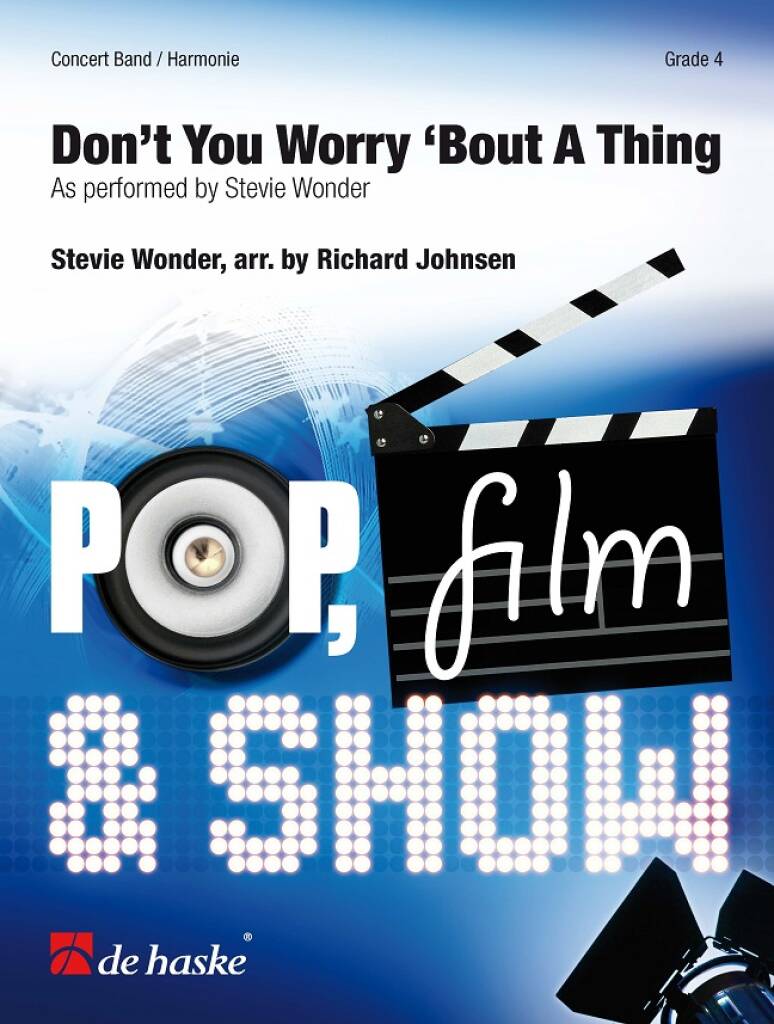 £102.99
£102.99Don't You Worry 'Bout A Thing - Stevie Wonder
Don't You Worry 'Bout A Thing is one of the most popular songs by Stevie Wonder and has been performed by various other famous artists throughout the years. The version from Al Jarreau is probably the most well known, and has been arranged by the Norwegian arranger Richard Johnsen.
Estimated dispatch 7-14 working days
-
£106.95
Cradle of Liberty
Al Hayes was one of seven pseudonyms used by famous march composer Henry Fillmore. Fillmore became so popular and was so prolific in the early part of the 20th century that he had to resort to pennames as to not compete with himself. This is yet another tuneful, well-written march by Fillmore that has been given new life in this setting by arranger Laurie Lafferty. This is the perfect march for use as a festival warm-up that is of a moderate difficulty.
Estimated dispatch 7-14 working days
-
£123.95
Alexander's Ragtime Band - Irving Berlin
One offerving Berlin's most popular songs is given the big band treatment by Jerry Nowak. It starts out with an up tempo swing, dense with harmony, and leads to a jazz ballad in the middle of the piece. This is then followed by a swing roll-off and a catchy Dixieland treatment of the tune by a brass quintet. It finishes up with the full band swingin' at the end. Great for pops concerts and for community bands.
Estimated dispatch 7-14 working days
-
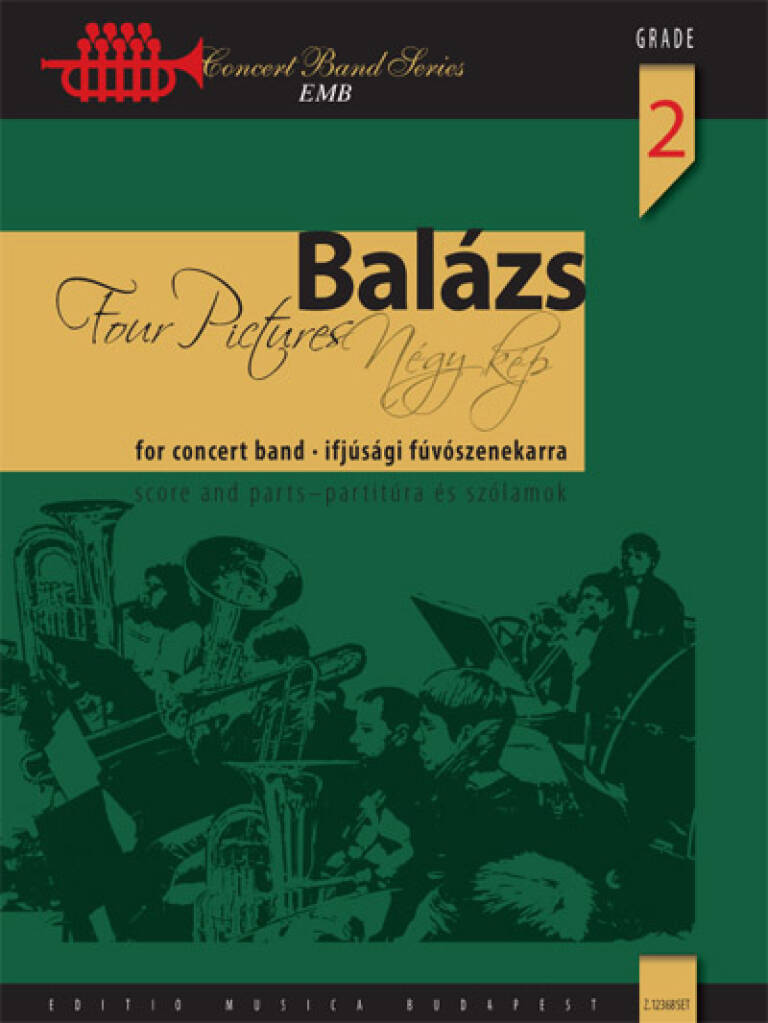 £53.50
£53.50Four Pictures - Árpád Balázs
The teachers under whom rpd Balzs (b.1937) studied composition - Ferenc Farkas, Aram Khachaturian and Goffredo Petrassi - each independently formed the opinion that with his lyrical gift rpd Balzs's true creative field would be that of choral music and wind ensembles. Their early predictions are borne out by the roughly two hundred and fifty works for choir and almost twenty for wind orchestra that the composer has since produced. It is interesting that in the suite entitled Ngy kp (Four pictures) the stylistic features of these two related musical fields are united. In it the wind instruments sing! It was not by chance that the expansive second movement was given the title Cantilena, while the slightly livelier but just as lyrical third movement was entitled Arietta. The opening movement of the work is a stridently jolly, energetic Indul (March), but not one of the rigidly military kind: the 6/8 rhythm contributes to its light-hearted character. This music is avowedly akin to the ballet music of Prokofiev. This choice series of four character pieces is crowned by Jtk (Play) in which conveying the effect of the mixture of lines moving in parallel and then colliding with each other may be more technically demanding, but is well worth the effort! (Hungaroton HCD 31353)
Estimated dispatch 7-14 working days
-
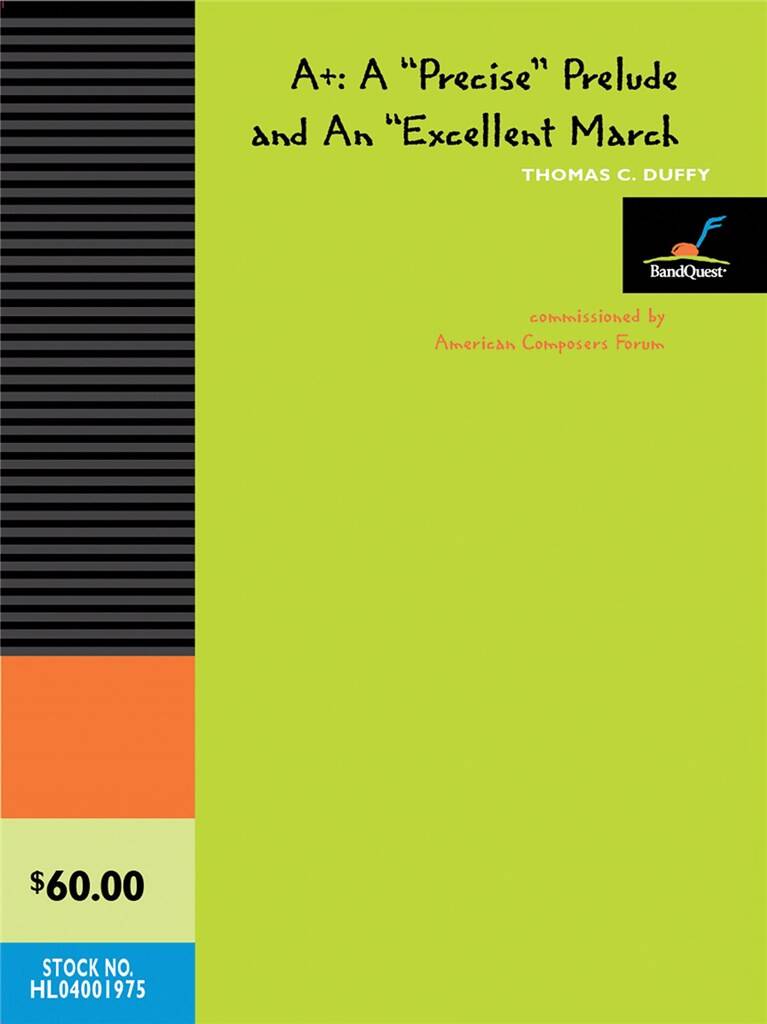 £57.50
£57.50A Precixe Prelude And an Excellent March - Thomas Duffy
Playing one wrong note can ruin the performance of a piece, right? Well, composer Thomas Duffy actually wants the performers to make mistakes in this clever composition! The precise imprecision comes to life as students are asked to intentionally play wrong notes in various parts of the march. After performing this work, you and your students will never look at perfection the same way again! Free interdisciplinary curriculum for the piece is available for download at www.BandQuest.org. BandQuest, an exciting series of new music and accompanying curricula for band, is a program published by the American Composers Forum. The series was started as a response to feedback from music educators that there is a pressing need for new, fresh band music. The heart of this program is new works written by a diverse group of leading American composers who have created challenging pieces that are a true departure from standard middle school repertoire. Every BandQuest project includes a residency component in which the composer works collaboratively with a middle school as they create their new piece. Many BandQuest pieces are accompanied by an interdisciplinary curriculum designed to assist students as they learn the music and to integrate each piece with non-music studies. Visit www.bandquest.org to learn more about this innovative series, and email [email protected] to request a free downloadable audio catalog.
Estimated dispatch 7-14 working days
-
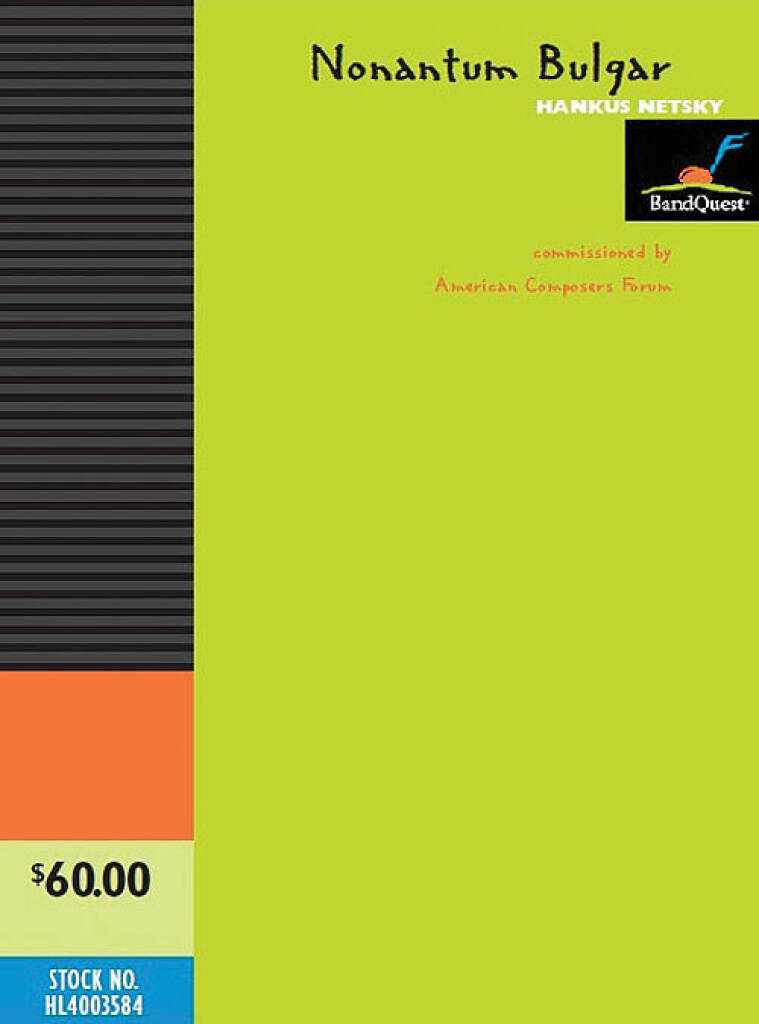 £57.50
£57.50Nonantum Bulgar - Hankus Netsky
Adding to the minuscule number of Klezmer pieces for concert band, Nonantum Bulgar is the 20th piece published in the BandQuest series. The title, Nonantum Bulgar, refers to Nonantum, a district in Newton which is home to the city's oldest synagogue (on the National Register of Historic Places), and bulgar (pronounced 'bull-ghar'), a type of Klezmer dance. When writing the piece, the composer imagined the dedication of the Adams St. Shul, which took place over one hundred years ago and featured a prominent Boston cantor and choir and a klezmer orchestra leading a Grand March down Adams St. This upbeat work is fun to play, features a trumpet solo, and gives every instrument the opportunity to play the melody. Learn more on YouTube! BandQuest, an exciting series of new music and accompanying curricula for band, is a program published by the American Composers Forum. The series was started as a response to feedback from music educators that there is a pressing need for new, fresh band music. The heart of this program is new works written by a diverse group of leading American composers who have created challenging pieces that are a true departure from standard middle school repertoire. Every BandQuest project includes a residency component in which the composer works collaboratively with a middle school as they create their new piece. Many BandQuest pieces are accompanied by an interdisciplinary curriculum designed to assist students as they learn the music and to integrate each piece with non-music studies. Visit www.bandquest.org to learn more about this innovative series, and email [email protected] to request a free downloadable audio catalog.
Estimated dispatch 7-14 working days
-
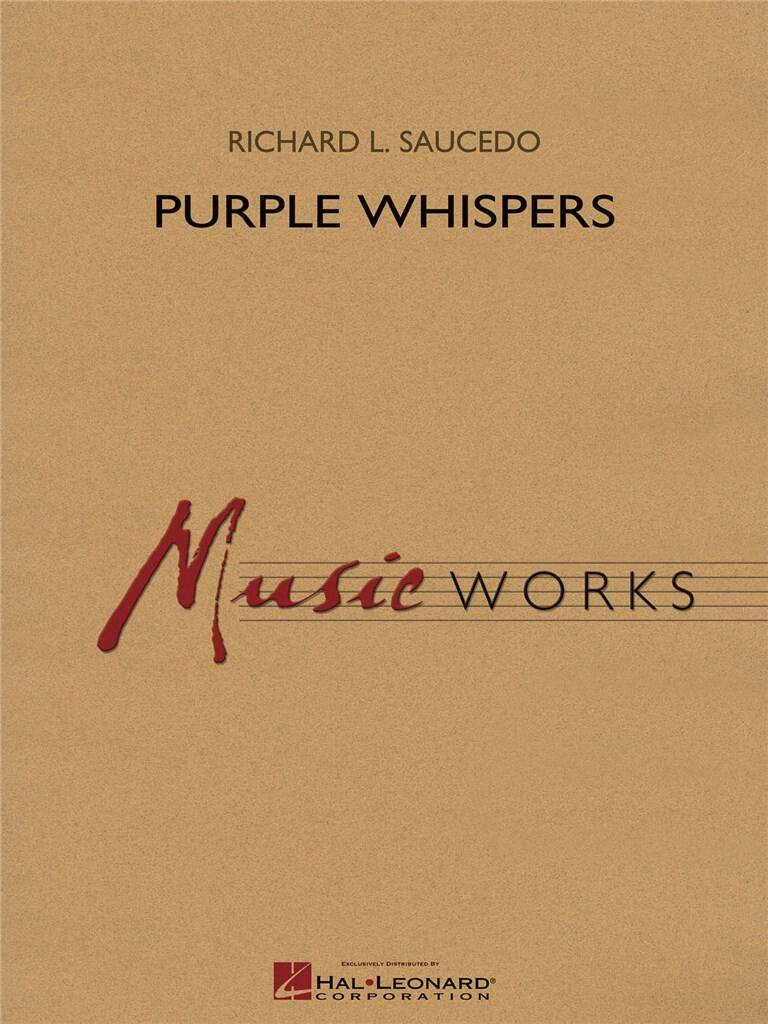 £79.99
£79.99Purple Whispers - Richard L. Saucedo
This remarkable and descriptive work opens and closes with members of the ensemble whispering to one another, creating a soft yet chaotic effect. The simple poem is by the composer: Whispers move in colored flight, seeking signs of next twilight, purple as the violets grow, warm but rich for all to know. As the piece progresses, introduced by a solo piano, the listener is taken through a dynamic range of emotional tension and release before the quiet mood returns to close out this uniquely effective composition. Dur: 5:15 Recorded by the Marshall University Wind Symphony - Steve Barnett, conductor
Estimated dispatch 7-14 working days
